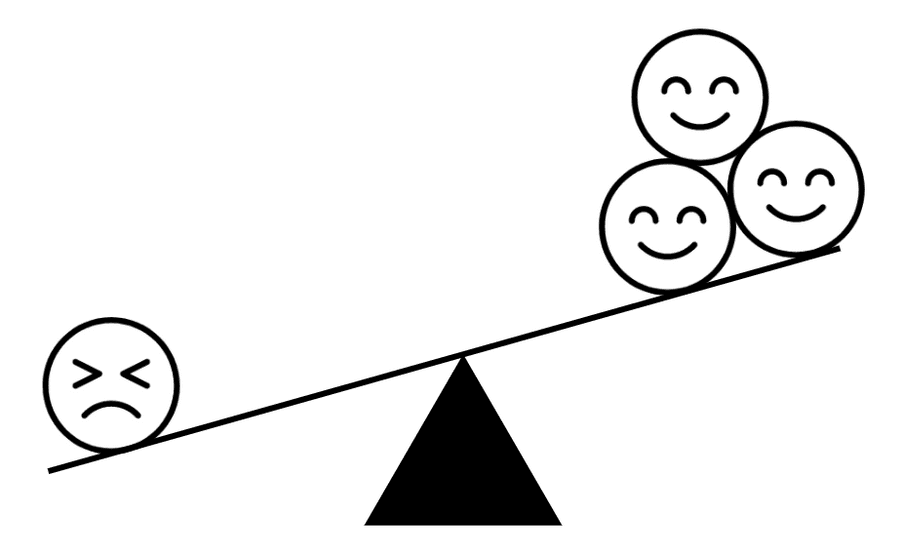The Negative Bias
The tendency to automatically give more weightage, attention and meaning to the negative aspects of any event or situation is called Negative Bias.
A 2008 study by the American Psychological Association (APA) found that we tend to react towards or be curious about the negative experiences and stories around us, considerably more than the positive ones.
99
393 reads
CURATED FROM
IDEAS CURATED BY
The idea is part of this collection:
Learn more about personaldevelopment with this collection
How to listen to your body's hunger and fullness cues
How to develop a positive relationship with food
How to trust yourself around food
Related collections
Similar ideas to The Negative Bias
Negativity Bias
Though issue arises when the mind only sees the negative.
The term for this is called Negativity Bias, Negative experiences have a greater effect on us than positives experiences. This means we give more importance to the negative.
Meaning we have a tendency to high...
The negativity bias
The negativity bias happens when a person dwells on a negative event for a long period of time.
We tend to register negative stimuli every time we go through displeasing situations. This is because negative events have a bigger impact than those of positive ones on...
Read & Learn
20x Faster
without
deepstash
with
deepstash
with
deepstash
Personalized microlearning
—
100+ Learning Journeys
—
Access to 200,000+ ideas
—
Access to the mobile app
—
Unlimited idea saving
—
—
Unlimited history
—
—
Unlimited listening to ideas
—
—
Downloading & offline access
—
—
Supercharge your mind with one idea per day
Enter your email and spend 1 minute every day to learn something new.
I agree to receive email updates

